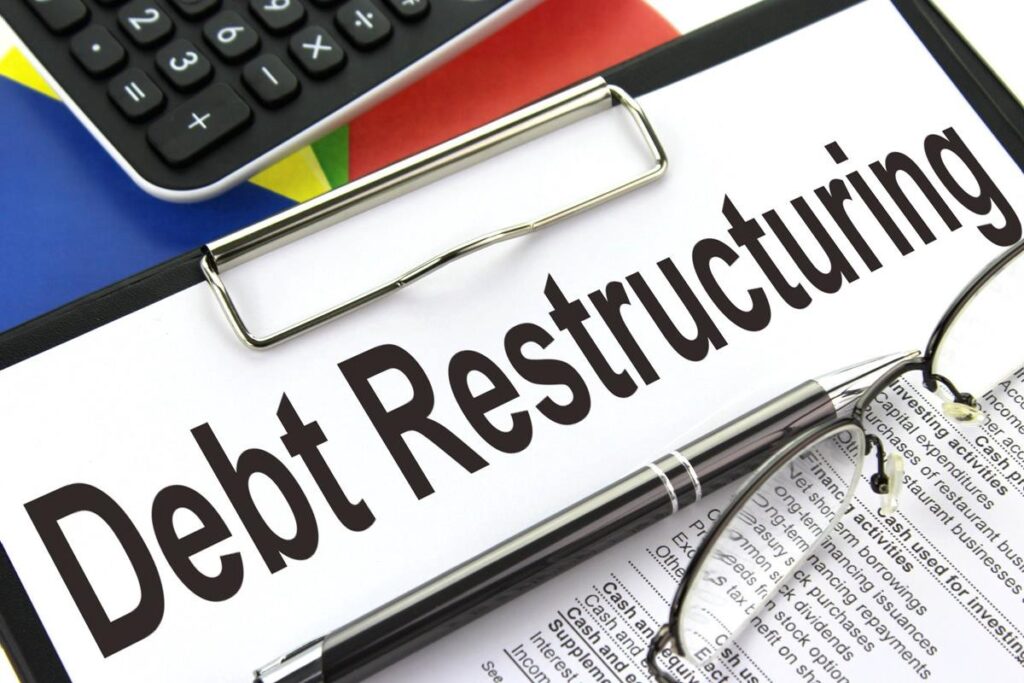Facing financial distress can be a daunting and overwhelming experience. It can leave individuals and businesses feeling helpless and uncertain about the future. Fortunately, insolvency lawyers offer their insightful assistance to help navigate the complex paths of bankruptcy and recovery. Understanding the concepts, legal definitions, and financial implications involved is crucial to making informed decisions. This article will shed light on these topics and explore the pivotal role played by insolvency lawyers in times of financial turmoil.
Understanding the Concept of Bankruptcy and Recovery
Bankruptcy and recovery are two sides of the same coin, representing contrasting approaches to financial distress. While bankruptcy involves legally declaring insolvency and relinquishing assets, recovery strives to revive financial stability and regain control over one’s economic well-being.
In legal terms, bankruptcy signifies the inability to repay debts. It involves a formal legal process that allows individuals or businesses to eliminate or restructure their debts under the supervision of a court. This process can be both daunting and complex, as it requires meticulous documentation and adherence to specific regulations. Bankruptcy proceedings may involve the appointment of a trustee who oversees the distribution of assets among creditors, ensuring a fair and equitable resolution. Learn more how insolvency lawyers can revitalise your finances.
However, the decision to pursue bankruptcy is not one to be taken lightly. It is essential to consider the long-term consequences that may arise from this choice. While bankruptcy can provide a fresh start by eliminating overwhelming debts, it can also have long-lasting repercussions such as credit damage and limited future financial opportunities. It may be necessary to rebuild credit from scratch, which can be a challenging and time-consuming endeavor.
On the other hand, recovery encompasses various strategies and actions aimed at restoring financial viability and solvency. It requires a proactive approach, often involving careful budgeting, debt management, and seeking professional guidance. Recovery is a journey that demands discipline, perseverance, and a willingness to make necessary sacrifices to regain control over one’s financial future.
During the recovery process, individuals or businesses may explore options such as debt consolidation, negotiating with creditors, or seeking financial counseling. These strategies can help create a roadmap towards financial stability, allowing for the gradual repayment of debts and the rebuilding of creditworthiness.
While recovery may be challenging, it offers the potential for financial rehabilitation and renewed success. It allows individuals or businesses to learn from past mistakes, develop healthier financial habits, and cultivate resilience in the face of adversity. Ultimately, the goal of recovery is not only to regain financial stability but also to establish a solid foundation for future financial growth and prosperity.
The Role of Insolvency Lawyers in Financial Distress
Insolvency lawyers possess specialized legal expertise in matters of financial distress. They play a crucial role in guiding individuals and businesses through the intricate web of legal and financial complexities during bankruptcy or recovery.
The Legal Expertise of Insolvency Lawyers
Insolvency lawyers have a deep understanding of bankruptcy laws and regulations. They specialize in navigating the intricate legal maze, ensuring compliance, and protecting the rights of their clients. Their expertise lies in analyzing complex financial situations, evaluating potential risks, and developing tailored strategies to achieve the best possible outcome.
How Insolvency Lawyers Facilitate Financial Recovery
Insolvency lawyers are not only well-versed in bankruptcy proceedings but also possess the knowledge and skills necessary to facilitate financial recovery. They help clients explore alternative options and negotiate with creditors to develop repayment plans, potentially avoiding bankruptcy altogether. Their expertise extends beyond legal aspects to providing valuable financial advice and guidance throughout the recovery process.

When it comes to financial distress, insolvency lawyers understand that the road to recovery can be long and arduous. They are adept at managing the emotional toll that financial difficulties can take on individuals and businesses. With their compassionate approach, they provide a supportive environment for their clients, offering reassurance and guidance every step of the way.
Furthermore, insolvency lawyers are well-connected within the legal and financial communities. They have established relationships with key stakeholders, such as judges, trustees, and financial institutions. These connections enable them to leverage their networks to benefit their clients. Whether it’s negotiating with creditors for more favorable terms or advocating for their clients’ best interests in court, insolvency lawyers have the resources and connections to navigate the complex landscape of financial distress.
The Process of Declaring Bankruptcy
When all other options have been exhausted, declaring bankruptcy may become a necessary step towards resolving financial distress. Understanding the legal procedure is vital for individuals and businesses considering this path.
The Legal Procedure for Bankruptcy
Declaring bankruptcy involves a structured legal process. It typically begins with the filing of a bankruptcy petition, followed by creditor notifications and the appointment of a trustee. The trustee plays a crucial role, overseeing the distribution of assets and the development of a repayment plan, if applicable. Insolvency lawyers guide their clients through each step of the process, ensuring compliance and protecting their interests.
The Role of Insolvency Lawyers in Bankruptcy Proceedings
Insolvency lawyers are indispensable in bankruptcy proceedings. They provide essential legal counsel, representing their clients’ interests before the court and advocating for the best possible outcome. They assist in compiling all necessary paperwork, conducting negotiations with creditors, and navigating the complex legal framework.
During the bankruptcy process, insolvency lawyers work closely with their clients to assess their financial situation and determine the most appropriate bankruptcy chapter to file under. There are different chapters of bankruptcy, each with its own set of rules and requirements. For individuals, Chapter 7 and Chapter 13 are the most common options, while businesses often file under Chapter 11.
Once the bankruptcy petition is filed, the court will issue an automatic stay, which halts all collection efforts by creditors. This provides immediate relief to the debtor, giving them time to regroup and develop a plan for moving forward. The automatic stay also prevents any legal actions, such as foreclosure or repossession, from proceeding without court approval.
Throughout the bankruptcy process, insolvency lawyers play a crucial role in negotiating with creditors. They work to reach agreements on debt repayment, often advocating for reduced interest rates or extended payment terms. These negotiations can be complex and require a deep understanding of bankruptcy laws and the financial landscape.
The Path to Financial Recovery
While bankruptcy may be a necessary path for some individuals or businesses, others may opt for the challenging yet potentially rewarding journey towards financial recovery. In this section, we explore legal strategies and the role insolvency lawyers play in helping clients regain financial stability.
Legal Strategies for Financial Recovery
Financial recovery requires careful planning and strategic decision-making. Insolvency lawyers work closely with their clients, assessing their financial situation and helping devise comprehensive recovery strategies. These strategies may include cost-cutting measures, negotiation with creditors, refinancing options, and implementing sound financial management practices.
One of the key legal strategies employed in financial recovery is the implementation of cost-cutting measures. Insolvency lawyers analyze their clients’ expenses and identify areas where reductions can be made without compromising the core operations of the business. This could involve renegotiating contracts with suppliers, streamlining internal processes, or exploring alternative sourcing options. By effectively reducing costs, businesses can free up much-needed funds to allocate towards debt repayment or investment in growth opportunities.
The Role of Insolvency Lawyers in Financial Rehabilitation
Insolvency lawyers act as guides and advocates, leading individuals and businesses towards financial rehabilitation. They assist in implementing recovery strategies, monitoring progress, and providing ongoing support throughout the journey. Their role extends beyond the legal realm, as they help clients regain confidence, rebuild credit, and emerge stronger from financial distress.
As part of their role in financial rehabilitation, insolvency lawyers often collaborate with financial advisors and consultants to provide a holistic approach to recovery. By working together, these professionals can develop a comprehensive plan that addresses both the legal and financial aspects of the client’s situation. This collaborative effort ensures that all angles are covered, maximizing the chances of a successful recovery.
Furthermore, insolvency lawyers play a crucial role in negotiating with creditors on behalf of their clients. They have the expertise and experience to navigate complex negotiations, aiming to secure favorable repayment terms or even debt forgiveness. These negotiations require a delicate balance between advocating for the client’s interests and maintaining a cooperative relationship with creditors. Insolvency lawyers excel in finding this balance, ultimately paving the way for a smoother path to financial recovery.

Making the Choice: Bankruptcy or Recovery?
Deciding between bankruptcy and recovery is a significant and deeply personal choice. Several factors must be considered before making a decision, and insolvency lawyers can play a crucial role in this process.
When faced with overwhelming debt, it can feel like there is no way out. However, it is important to remember that there are options available to help individuals and businesses regain financial stability. Bankruptcy, while often seen as a last resort, can provide a fresh start by eliminating or restructuring debts. On the other hand, recovery involves developing a comprehensive plan to repay creditors and regain control of finances.
Factors to Consider in Making the Decision
Each financial situation is unique, and various factors must be weighed when choosing between bankruptcy and recovery. These factors may include the severity of debt, the viability of the business, long-term financial goals, the impact on personal and professional reputation, and the potential for future financial growth. Insolvency lawyers offer valuable insights and analysis to help individuals and businesses make informed decisions aligned with their specific circumstances.
One crucial factor to consider is the impact on personal and professional reputation. Bankruptcy may have a negative stigma attached to it, potentially affecting future creditworthiness and business relationships. Recovery, on the other hand, demonstrates a commitment to honoring financial obligations and can help rebuild trust with creditors and stakeholders.
How Insolvency Lawyers Can Help in Decision Making
Insolvency lawyers act as trusted advisors, providing the necessary expertise and guidance in decision-making processes. They evaluate the potential advantages and disadvantages of each option, present alternative solutions, and help clients understand the consequences of their choices. Their objective perspective and extensive legal knowledge serve clients in making choices that align with their best interests and long-term financial goals.
Moreover, insolvency lawyers can assist individuals and businesses in exploring alternative solutions to bankruptcy or recovery. These may include debt consolidation, negotiation with creditors, or implementing financial restructuring plans. By considering all available options, individuals and businesses can make well-informed decisions that address their immediate financial challenges while setting a solid foundation for future growth.
In conclusion, facing financial distress can be an arduous journey, but it is not one that individuals or businesses have to face alone. Insolvency lawyers offer insightful assistance in navigating the paths of bankruptcy and recovery. Armed with their legal expertise and unwavering guidance, individuals and businesses can make informed decisions that pave the way for a brighter financial future.


